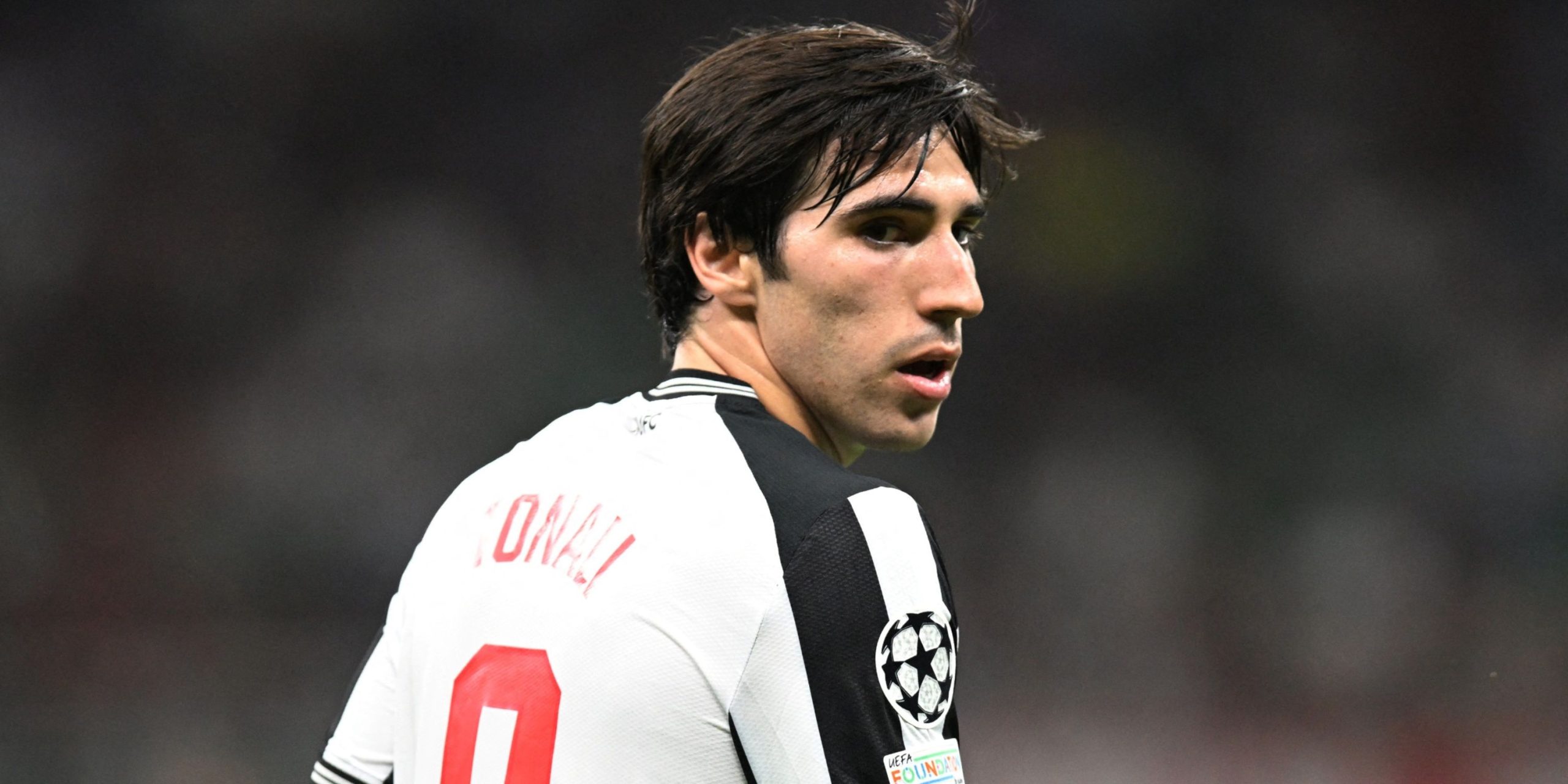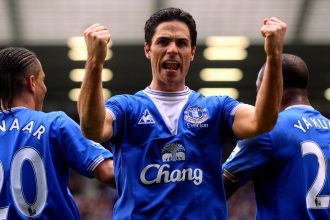Elite-level football has witnessed some high-profile bans over the last few years – with Juventus the most affected. Not exactly their first run-in with authorities, mind.
Their midfielder Nicolo Fagioli received a seven-month suspension for gambling in October 2023, while Paul Pogba (yes, he’s still an active player) had to put his career on hold after testing positive for a banned substance.
Newcastle United’s Sandro Tonali also recently served a lengthy ban for betting offences.
Football history is littered with high-profile suspensions, including massive bans for some of the game’s greatest players. We thought we’d pick what we feel are the 16 craziest we’ve ever seen.
12 football clubs to have suffered points deductions
These clubs had the book thrown at them…
ByJack Salveson HolmesNov 17, 2023 Paul Pogba – 18 months
World Cup winner Paul Pogba was originally banned for four years in February 2024 after a doping violation. The Frenchman was banned after a drug test in September 2023 found that he had elevated levels of testosterone, which could enhance performance.
After an appeal, his ban was reduced to 18 months by the Court of Arbitration for Sport (CAS), allowing him to play football again from March 2025. However, he was a free agent come the end of the 2024/25 campaign, having terminated his deal with Juventus in November 2024.
Sandro Tonali – 10 months
Newcastle’s Sandro Tonali will not play again this season. He only arrived in the north-east this summer as the most notable signing for the Magpies as they compete in the Champions League for first time in two decades.
But the Italian won’t feature any further and will also miss Euro 2024 next summer. Tonali won’t return to football until August, in fact, after receiving a 10-month ban after betting on football matches.
Nicolò Fagioli – Seven months
Juventus midfielder Nicolò Fagioli received a 12-month suspension – of which five months have been suspended – after admitting to betting on football matches.
Now, Fagioli never did bet on matches involving Juventus but the minimum suspension in Italy for breaching their betting rules is three years. The midfielder alerted prosecutors to the case himself in a successful effort to dramatically reduce his punishment.
The player, still only 22, will now miss a big chunk of his career – but it could have been a lot worse.
Mark Bosnich – Nine months
There was a time when Mark Bosnich was one of the top goalkeepers in the Premier League. His efforts for Aston Villa in the 1990s meant Manchester United signed him to replace Peter Schmeichel – earning Bosnich a title medal in 2000.
But things collapsed fast. Fabian Barthez arrived to replace Bosnich after one season and the Australian joined Chelsea on a free transfer in January 2001. He didn’t debut until the next season, however, and only played five Premier League games before testing positive for cocaine in September 2002.
The resulting nine-month ban saw Chelsea tear up his contract. Bosnich spiralled into addiction, remaining out of the game until a comeback in the A-League in 2008.
Paolo Di Canio – 11 games
So this one isn’t anywhere near the length of some of these bans – but it remains one of the most memorable Premier League moments ever. It happened in 1998 as Sheffield Wednesday hosted Arsenal, a game that the Owls would win 1-0.
However, no one remembers that. Instead, they remember Di Canio being sent off for his part in a ‘brawl’ and responding by pushing over referee Paul Alcock. Honestly, an 11-game ban wasn’t all that bad.
Luis Suárez – Eight games
Patrice Evra accused Luis Suárez of racial abuse back in 2011, coming out of a game between Manchester United and Liverpool. Controversy erupted.
Liverpool stood by their player, claiming there was no abuse – they infamously worse shirts with the Uruguayan on them before a game in protest. Evra stood strong, however, and the FA eventually found Suárez guilty of racial abuse, banning him for eight games.
But it didn’t end there. Liverpool released a statement saying it was ‘extraordinary’ that a player could be banned on the word of one opponent. Suárez then refused to shake Evra’s hand the next time they met. Both the Reds and Suárez have since apologised for those reactions, however, and the striker never did anything controversial ever again…
Ivan Toney – Eight months
Brentford striker Ivan Toney is currently serving an eight-month suspension for breaching betting rules. The Brentford striker admitted to 232 breaches, in fact, which saw an independent commission hand down a massive ban.
Toney missed the final two games of last season as a result and won’t be able to play again until January 16th, 2024. Brentford have a lot of work to do to cope without him – but may not be the only club missing a player on betting charges for much longer…
Joey Barton – 18 months
So how exactly do you get a ban that long on betting charges? It makes Toney’s look like a brief holiday.
Probably how you guessed – you make an enormous number of bets (1,260) over several years (seven) and include games in which you played (five). Barton did manage to win an appeal to bring it down to 13 months but at 34, this effectively ended the midfielder’s career.
But honestly, the biggest shock was that Barton’s big ban came from betting and not violent conduct.
Enoch West – Lifetime (reduced to 30 years)
We’d place this one higher if it was a little bit more recent, admittedly. West was the highest-profile player in a match-fixing scandal back in 1915. The game, between Manchester United and Liverpool, was fixed to finish 2-0 to the hosts.
But after it became clear that a large amount of money was placed on the scoreline, an investigation started. It found several players – on both sides – guilty and they were banned for life. United forward West sued for libel but the ban was upheld.
All players but West had their bans ended after the First World War for service to their country (though, Sandy Turnbull died fighting). West, who at one point was a 29-goal striker in the First Division, wouldn’t see his own ban overturned for 30 years, when he was 59.
Adrian Mutu – Seven months
Chelsea signed Mutu back in 2003 following Roman Abramovich’s game-changing takeover. The Romanian was supposed to be one of the next big stars in English football.
But once José Mourinho took over a year later, Mutu fell out of favour – reportedly because Mourinho knew about his drug-taking. In late 2004, the forward tested positive for cocaine, leading to Chelsea immediately sacking him. In fact, they did that before a verdict even came down.
Mutu was eventually suspended for seven months and Chelsea sued him for breach of contract – asking for £14.75m, an amount FIFA agreed on.







